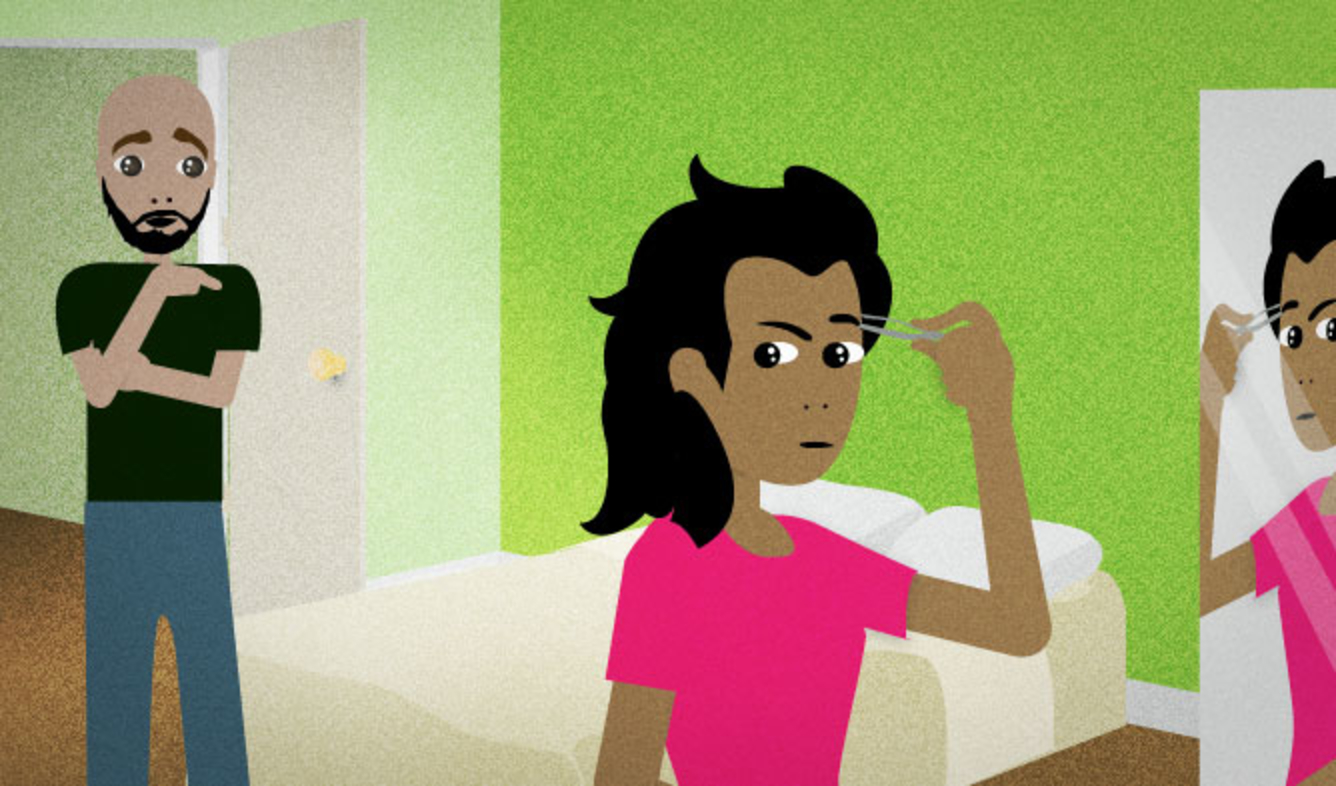“If you keep plucking them, you'll end up with no eyebrows left.”
Your girlfriend shapes her eyebrows by pulling out some of the hairs. You think she does it too much, because her eyebrows are really thin. You say this when you see her doing it.
If you keep plucking them, you'll end up with no eyebrows left.
Want Video and Sound? Follow us on YouTube

keep (doing something)
This means to continue doing something, again and again. For example:
"Keep ___ing" is used in normal spoken English, and can also be used in writing. But if you're writing a formal essay or speech, a better choice is "continue ___ing".
pluck (out) (hairs)
"Plucking" part of your body means pulling hairs out of it, one by one, usually with tweezers. You can use the word "pluck" to talk about either the object, or the hair itself:
Do you pluck your eybrows?
I saw a gray hair, so I plucked it.
Sometimes people say "pluck out" to talk about the individual hairs (but not the whole object):
I saw a gray hair, so I plucked it out.
Aside from body hair, things that people "pluck" include:
- a chicken
- fruit (from a tree or bush)
- the strings of an instrument
end up with (something or nothing)
This expression describes what eventually happens at the end of a process:
If you keep drinking and smoking, you're going to end up with all kinds of health problems.
You can use it for either positive or negative results:
We ended up with over twenty thousand dollars in sales.
Bugs got to the squash last summer, and we ended up with nothing left.
This last example has "left" at the end. "no ___ left" and "nothing left" are commonly used in this phrase.
